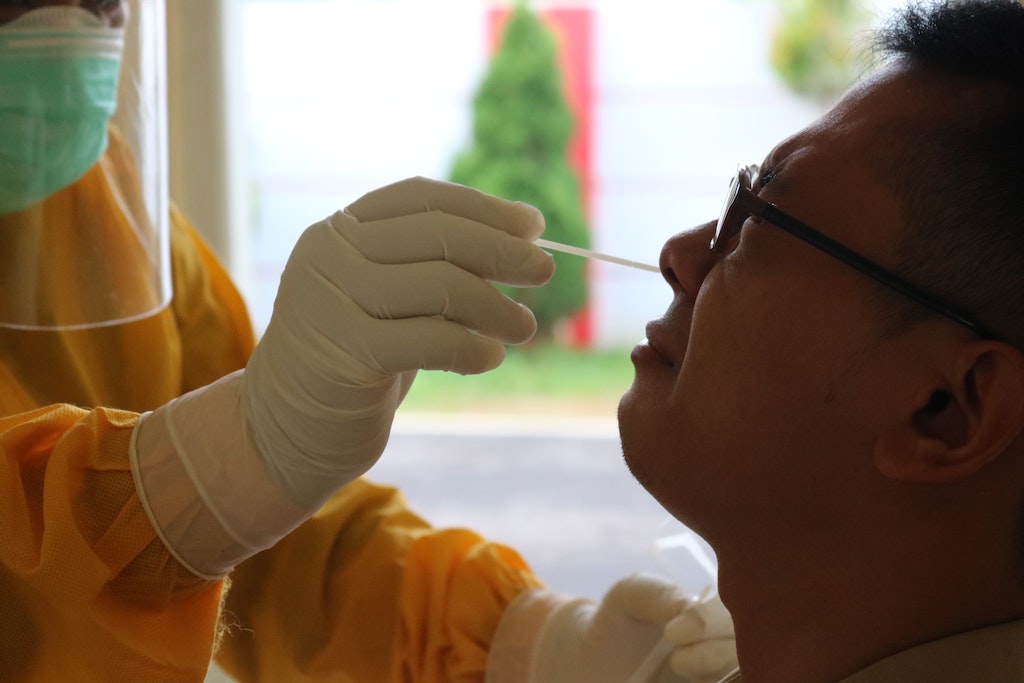DIY COVID antigen kit vs COVID PCR test
With these DIY kits now available, here are some things to keep in mind.
 On the June 10, 2021, Singapore’s Ministry of Health (MOH) announced that DIY COVID antigen testing kits would be available for the public to buy off the shelf for self-testing purposes. Dr Julian Ng, the chief medical officer at DTAP Clinic Singapore, Malaysia and Vietnam, shares his thoughts:
On the June 10, 2021, Singapore’s Ministry of Health (MOH) announced that DIY COVID antigen testing kits would be available for the public to buy off the shelf for self-testing purposes. Dr Julian Ng, the chief medical officer at DTAP Clinic Singapore, Malaysia and Vietnam, shares his thoughts:
What is a COVID antigen test and how is it different from a COVID PCR test?
Imagine that the COVID virus is a person wearing a coat. This coat is called the antigen, while the nucleic acid (RNA, short for ribonucleic acid) is the person’s body. Antigen tests work by detecting the presence of the coat, while PCR tests work by detecting the presence of the body. Vaccines and our own immune systems also target the antigen. Interestingly, just as we don’t wear the same coats every day, viruses might also change their antigens when they become a new strain of the same virus.
Currently, most of the COVID antigen tests offered in clinics and done by health professionals or trained personnel, take a sample from all the way to the back of the inside of the nose. While it is largely painless, this procedure may cause some discomfort like watering eyes, or a feeling that you need to sneeze.
Conversely, some of the DIY COVID antigen kits that can be used by the public only requires the person to take sample from the front part of the nostrils. This makes it easier for untrained members of the public to take a sample. However, this might mean that the test may not be as sensitive as those done by clinics or trained personnel.
COVID PCR test also takes samples from the back of the nose. However, it detects the “body” of the virus. In the COVID virus case, the test detects the RNA of the virus. This means that this test is the most accurate and sensitive to detect whether a person has the infection or not as it only needs a small amount of the “body” of the virus to be present.
COVID antigen tests are known to be less sensitive than the COVID PCR tests. This means that they have a higher chance of giving a negative result, even when the person being tested has been infected. It comes down to the fact that the COVID PCR only needs a tiny amount of the “body” of the virus to give a positive result as the PCR technology is able to multiply the tiny amount of the “body” of the virus millions of times, even if the person may have very small amount of the virus.
If the COVID antigen tests are less sensitive than COVID PCR tests, then why are we using it?
The main reason is that COVID antigen tests give quick results. It requires roughly about 15 to 20 minutes to give an idea of whether someone is infected or not. In contrast, COVID PCR tests take from a few hours to 24 hours for results. Thus, if the aim is to try to identify and isolate people quickly to reduce the chance of spreading it further, then using the antigen test may be more appropriate.
Is there a difference between using the DIY COVID antigen test kit to self-test versus seeing a medical professional?
As mentioned previously, many of these DIY covid test kits used only require samples from the front of the nostrils. The amount of virus antigen may be lesser than if the samples were taken from the back of the nose. Thus, there is a potential that it is less sensitive than the ones collected by professionals.
However, these DIY kits may have a role to play. If you think that you may have been exposed to COVID, you may want to do your own testing first. If the DIY test kit turns positive, then you should go to a health professional for further advice.
Please make sure that you buy from reputable sources if you do wish to use these DIY COVID test kits. You may be tempted to buy these online, but in some cases, these kits are fake, not properly manufactured, or poorly stored. This can result in the purchase of a malfunctioning test kit.
Additionally, please follow the instructions of the kit strictly. If you don’t, you may cause the result to be falsely negative even though you might actually be infected.
Lastly, if you do test positive using these DIY test kits, please visit the nearest medical professional to seek further advice and testing. Please do not brush off a positive result, even if you are asymptomatic, as you might be endangering the lives of your loved ones at home, as well as your colleagues and friends. You might not be lucky enough to win the lottery, but you certainly don’t want to take any chances when it comes to a COVID-19 infection.
(** PHOTO CREDIT: Unsplash/Mufid Majnun)

0 Comments